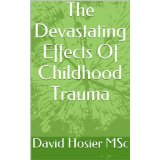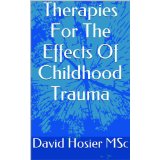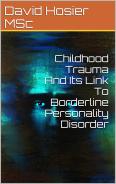Tags
Ten Questions We can Ask Ourselves to Challenge Our Negative Thoughts.
My mother was one of the world’s most negative people. I remember, when I was a young child, one of her favourite sayings was that people did not need to ask what Hell would be like as we were ‘all living in it now’. At the time, it seemed like she might be on to something.
If we have suffered childhood trauma it is likely we have been conditioned to think negatively since we were very young. Negative thinking is also a hallmark of clinical depression (click here to read my article about the link between childhood trauma and major depression) and other serious psychological disorders.
When negative thinking becomes pathological, our views of just about everything may become distorted, or, as it is technically termed, we are very prone to ‘cognitive distortions’ (this term just refers to the errors in thinking – cognitions – we make that causes us to interprete things far more negatively than is objectively warranted).
These ‘thinking errors’ often become so pervasive that they lead us to develop what psychologists refer to as a ‘NEGATIVE COGNITIVE TRIAD’:
THE NEGATIVE COGNITIVE TRIAD involves us holding :
1) A NEGATIVE VIEW OF OURSELVES
2) A NEGATIVE VIEW OF OTHERS
3) A NEGATIVE VIEW OF THE WORLD
When we suffer from excessive negative thinking, psychologists point out that such thinking becomes AUTOMATIC/REFLEXIVE and we therefore need to start challenging our negative thoughts to discover if they are really valid (very often, if we are depressed, they are not).
I therefore list below ten examples of the kinds of questions we can ask ourselves when we find ourselves caught up in a relentless and overwhelming stream of negative thoughts :
– do I over-focus on my weaknesses at the expense of my strengths?
– am I jumping to conclusions?
– am I erroneously treating my thoughts as facts?
– how appropriate is blame in this situation?
– am I being too much of a perfectionist?
– how are my thoughts affecting how I feel?
– how are my thoughts affecting how I behave?
– am I looking for clear-cut answers where they don’t exist?
– am I thinking in terms of extremes rather than taking a more balanced view?
– is there only a downside to this situation or is there anything I can turn to my advantage?
To read my article on how cognitive-behavioural therapy can help us to challenge our negative thoughts click here.
Above three eBooks available for immediate download from Amazon at $4.99. CLICK HERE.
David Hosier BSc Hons; MSc; PGDE(FAHE).
–







